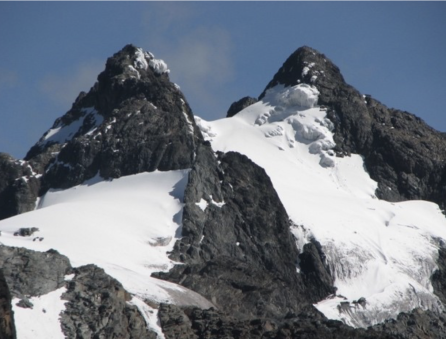About the Place
Nestled between the Rwenzori Mountains and the Ekyisalhalha Kya Kororo sacred cultural site, the Kasese district in Uganda is characterized by a diverse landscape intersected by the Kabiri and Kithangetse rivers.
Kasese is characterized by its rich heritage, cultural diversity, and spiritual connections to the land and rivers. The site Ekisalhalha kya Kororo, located at the confluence of the Kabiri and Kithangetse rivers in the Kyondo sub-county, Kasese district, holds significant indigenous knowledge and heritage. According to legend, the site was traditionally a court where disputes related to land, marriage, witchcraft, and other injustices were resolved. Rituals performed at the site included rain-making, and the location served as a hideout during historical conflicts.
Climate Change as a Risk Driver
Since 2014, the area has experienced devastating floods and landslides caused by melting glaciers and intense rainfall, negatively affecting over 120,000 individuals and exposing them to heightened disaster risks. With glaciers projected to melt completely by 2050 River Kabir’s volume will rise leading to more frequent precipitation anomalies, intensifying micro-climate challenges. The adversities faced by the communities threaten not only their lives but also engender conflicts and displacements due to food insecurity and land issues.
These extreme events are likely to occur more frequently in the future, indirectly impacting over 700,000 people and leading to displacement, loss of farm crops, land conflicts, and increased food insecurity. These challenges are expected to worsen due to deforestation, poor early warning systems, and insufficient use of indigenous knowledge in flood risk management.
Indigenous Knowledge
The Bakonzo and Basongora communities in Kasese possess rich Indigenous Knowledge tied to their spiritual connection with the land and Kabiri River. This includes practices for managing natural resources, predicting weather, and maintaining social harmony, such as weather predictions by ridge leaders, ritual cleansings, and knowledge of indigenous trees and their protective taboos. This knowledge helps manage floods and mitigate climate-induced disasters.
"Our ancestors left us with treasures of knowledge about the river and the weather, and it's our responsibility to protect and use it wisely for our future."
CCFU (Net Zero team)
Culture-Based Actions Taken
During the project period, several strategies were used to leverage the indigenous knowledge recorded for reducing the impacts of climate-induced disasters, enhance social cohesion among the Bakonzo, Basongora and other indigenous groups, and contribute to decarbonization.
Raising Awareness on Climate Change and its Impacts
More than 25 stakeholders from the Kasese Local Government district, civil society organizations, cultural institutions, parastatals, and indigenous minority communities participated in focused meetings to better understand climate change and its impact on their settlements. Additionally, a participatory Vulnerability and Capacity Assessment helped raise awareness among key on the importance of involving cultural leaders in decision-making and integrating indigenous knowledge in climate change mitigation and adaptation, as well as riverbank restoration and early warning systems.
Planting Indigenous Trees to Manage Flood Risks and Fostering Cross-generational Knowledge Exchange
Approximately 2,000 indigenous trees, including ficus natalensis (mitooha) and bamboo, were recently planted along the Kabiri River to combat soil erosion and protect the riverbanks from flooding. Over 100 secondary school students from Kasese participated in the tree-planting activity and an intergenerational dialogue with Indigenous knowledge holders. The initiative aimed to engage youth, share elders' wisdom, and promote collaboration among diverse cultural backgrounds to support sustainable climate action and decarbonization.
Establishing a Climate Change Mitigation Committee
At the end of the project, a climate change committee was formed with representatives selected from eight villages located along the river valley to encourage community members to plant and care for indigenous trees along the riverbanks. The committee has already sparked the interest of many community members towards this initiative.

